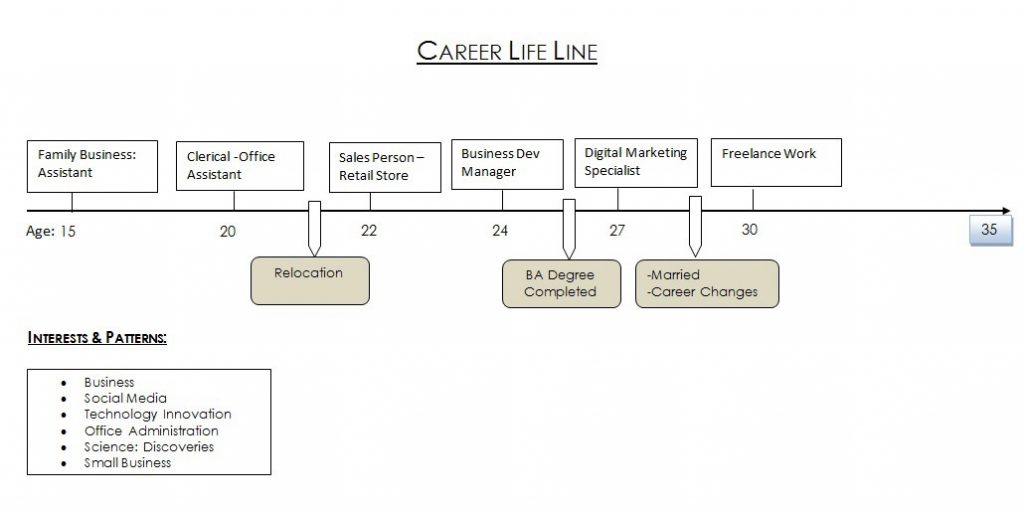How do you change careers when you’re feeling stuck and work is not fulfilling? May be there is a growing pain about your situation but you have no idea where to start. Career change can be scary because of the uncertainty and leaving the familiar. How do you overcome the barriers and take steps toward finding work you love?
Below you will find my career change tips and 8 essential steps to get you started and help you dissolve the blocks that keep you stuck.
1. Gain deeper self-awareness
As a first step, gain some clarity about your current situation and the path traveled so far. What is your internal voice trying to tell you? Sometimes we have so much pressure to do well and serve others’ agendas that we forget to listen to our internal voice.
Reflect on your experiences:
- Where have you been, what have you learned, and what competencies you want to develop in the future.
- Begin to collect the clues to your strong interests: when do you lose track of time and what makes you feel alive?
2. Be clear about the change you desire
Sometimes we are so confused about what we long for that we need some help discovering new possibilities. Some of you desire a small shift while others – a major change. May be you desire more meaning and purpose in your career, and you wonder how to transform yourself and re-invent your career.
When I was laid off from my corporate job, it was a welcome change but I had no idea what I wanted to pursue. That event took me on a quest for meaning and finding something that changed my career trajectory.
3. Uncover your career story
Uncover your career story by reviewing your past, present, and future chapters of your work life. This will reveal some patterns, and help you understand your motivations and needs.
A great exercise is to create a Career Life Line with your work experiences, and major life transitions.

Jot down all the jobs you ever have had on your career-life line. Make chapters – school, pre-professional life jobs, professional jobs, etc. Include any major life transitions and changes, and the impact on you and your career. In your journal, indicate how you found your jobs, why these they were selected, reactions to each job, and work most valued.
Your goal is to create a story of your work experience and gain insight about your strengths, skills, values, and vision for your work-life.
4. Evaluate your risk tolerance
We all have different tolerance for risk and our own fears that keep us stuck from growing. The hardest part is making the decision to leave and undertake a new path. Success is never a straight line so there is no guarantee how long it will take to become successful.

The most important is to believe in yourself, and build a support network with mentors, advisors and colleagues to encourage you! You will have moments of uncertainty, and moments when you feel like you have lost yourself. Use your inner compass and support system to navigate challenges on the way to success.
When I decided to make a career change from Corporate America to counseling, I knew that was a serious shift, and a risk to re-build my career in a different field. I was open to the challenge and aware of the sacrifices – a few years of education, practicums, building experience, and a dose of uncertainty. What helped me the most is shifting my connections to the new field.
5. Figure out what keeps you stuck
Think about what is most difficult in seeking a new direction: Is it gaining more clarity? Do you need more confidence? Is it managing your anxiety? Do you need to figure out a plan for change?
You may be afraid of the unknown, or have fear of failure. It is helpful to ask yourself: What is the worst that could happen? What kind of resources and information do you need to make this happen?
Keep in mind that a career change has 2 components:
- The emotional or internal shift that you have to make – redefining who you are, and your sense of self in a new position.
- The other side is more practical – getting information, doing research, and learning about the field of your interest.
6. View uncertainty as a new experience and opportunity for learning
When you are in a job transition, most people experience some confusion and insecurity. We are afraid of the unknown. You may want to jump ahead, and skip this step. Many of us try to control or eliminate it altogether.
Let the path unfold, practice acceptance, and stay open to synchronicity and new opportunities.
Establish daily practices to nourish your emotional, physical, and intellectual side to feel optimistic and resilient about your transition. Stay open to synchronicity and new possibilities to grow.
7. Manage risk by taking small steps
Create experiments and try out new professional roles before fully committing to a Master’s degree, Law School or a major shift in your career. Think about shadowing first, taking a side project, an internship, volunteering or taking a class. Allow yourself time and patience for a transition – change happens in small steps.
- A great way to minimize risk is to create new contacts and try on professional roles to ensure you are on the right track.
8. Commit to change and take some action
Once you gain some clarity and identify some possibilities, your next step is to commit to change and take some action. Don’t stay stuck and ask multiple “What ifs” without taking any action.
If you feel ready to explore new paths, you are one step closer to a career change.
If you’re not ready yet, ask yourself:
What is getting in my way? Explore what is going on inside yourself. Is it an internal obstacle or simply more practical information to make a decision?
If you continue to do what you have always done, then you can’t expect a different outcome. Without exploring your passions, making new connections, expanding your comfort zone – you would not change much. So start creating the future chapter of your career and life! Having work that you enjoy and feel engaged is essential to your overall life and well-being.
Career changes, small or large, are absolutely possible! Having the courage, plan of action, and support will greatly help you.






0 Comments